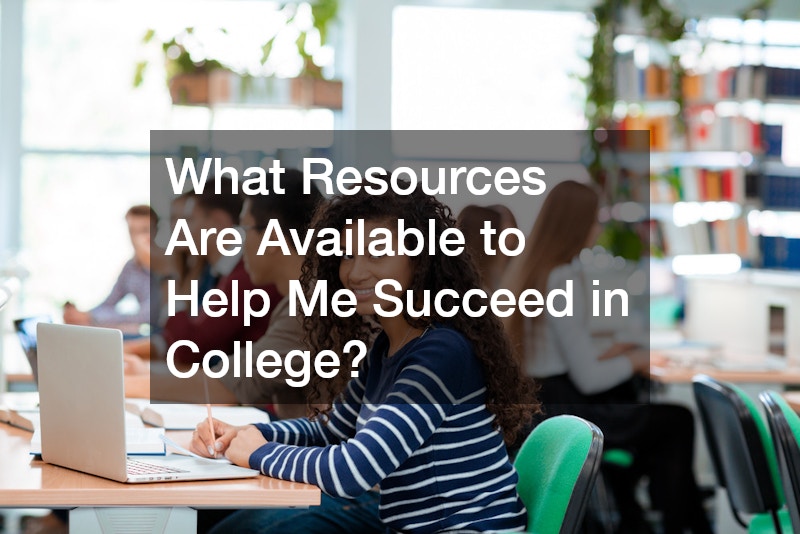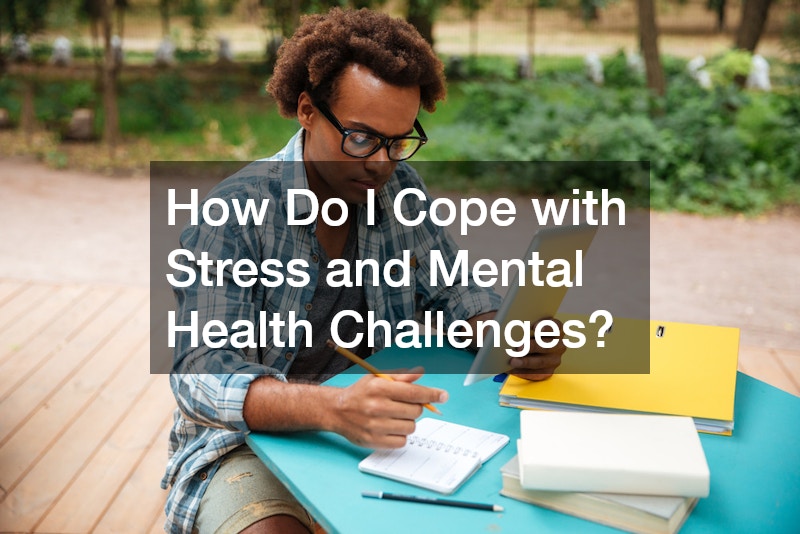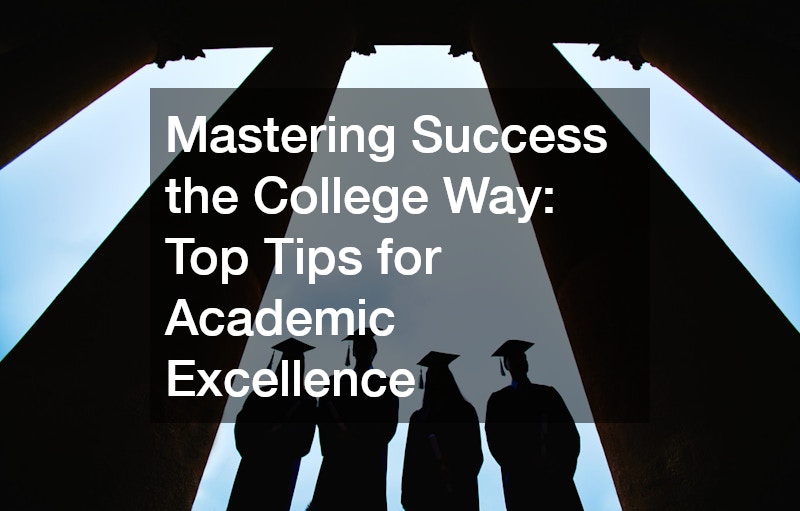Success in college is not merely a product of intelligence or talent—it’s the result of consistent effort, smart planning, and effective use of resources. Mastering success the college way means adopting a proactive approach to academics, developing strong study habits, and making use of every opportunity your college offers. Whether you’re attending a private school, participating in preschools as part of early education research, or enrolling in a welding school, the strategies you use to excel academically remain fundamentally the same. From managing your time to participating in afterschool program activities that build skills, every choice contributes to your long-term success.
College is not just about passing exams—it’s about preparing for life. This article will guide you through ten key areas where you can build and sustain academic excellence. Along the way, we’ll explore how to use available resources effectively, balance your social and academic life, manage stress, and prepare for a successful future. We’ll even touch on often-overlooked but essential elements like learning through swimming classes or managing basic needs like continuous hot water in dorm life. Let’s delve into mastering success the college way.

1. How Can I Manage My Time Effectively in College?
Time management is the cornerstone of academic success in college. Without a structured schedule, students often find themselves overwhelmed with assignments, social obligations, and part-time jobs. Understanding the importance of time management is the first step. It’s not just about getting everything done—it’s about getting the right things done in the most efficient way. Creating a daily schedule helps establish a routine and prevents last-minute cramming. Tools like digital calendars, mobile apps, or even old-fashioned planners are instrumental in tracking assignments and managing deadlines. Balancing academics and extracurricular activities such as afterschool program activities or involvement in an art program requires prioritisation and sometimes difficult choices.
Yet, the rewards include personal growth, increased productivity, and better academic performance. Overcoming procrastination is another major hurdle; students can tackle this by breaking tasks into smaller steps and setting personal deadlines. Remember, effective time management isn’t rigid—it allows room for flexibility and unexpected events. Whether you’re preparing for swimming classes or managing group projects, mastering your time will give you the freedom to enjoy your college experience while staying on track academically.
2. What Are the Best Study Habits for College Students?
Good study habits form the backbone of academic excellence. Active learning techniques—like summarising readings, teaching material to others, and using flashcards—are far more effective than passive reading. Setting realistic study goals each week allows students to stay motivated without feeling overwhelmed. It’s important to identify a study environment that suits your learning style. For some, a quiet corner of the library works best; for others, a bustling café might inspire focus. Group study sessions can also be highly beneficial when managed properly, offering different perspectives on the material and promoting accountability.
Additionally, students should utilise office hours to clarify concepts and build relationships with professors. These interactions not only enhance understanding but also can lead to mentorship and research opportunities. Think of study time like investing a coin—each moment contributes to a larger academic gain. Whether you’re attending a prestigious private school or a hands-on welding school, these habits are universally beneficial. With consistent practice, good study habits become second nature, setting you up for long-term academic and professional success.
3. How Do College Students Stay Motivated?
Maintaining motivation throughout college can be challenging, especially when faced with setbacks or competing demands. The first step is setting clear academic goals. These goals should be specific, measurable, and aligned with long-term aspirations. Whether it’s maintaining a GPA, earning a scholarship, or preparing for graduate school, having a target provides purpose and direction. Building a support system is equally crucial—friends, family, professors, and even mentors from your afterschool program activities can provide encouragement and guidance.
Rewarding yourself for achievements, both big and small, helps sustain motivation. This might be as simple as enjoying a movie night after a productive week or investing in a new tool for your art program. Handling academic setbacks with resilience is essential. Every failure is a learning opportunity that builds character and adaptability. Maintaining a positive mindset, through affirmations or journaling, can help students navigate tough times. Even seemingly mundane tasks, like taking swimming classes for physical wellness, can renew motivation and reduce burnout. Ultimately, motivation stems from a sense of purpose and the belief that each effort, no matter how small, contributes to future success.

4. What Resources Are Available to Help Me Succeed in College?
Colleges offer a treasure trove of resources designed to support student success. The library is an obvious but often underused resource—not just for books, but for research databases, quiet study areas, and academic workshops. Academic advising helps students navigate their coursework, choose majors, and stay on track for graduation. Career services offer resume workshops, interview prep, and job fairs that connect students with future employers. Technological resources such as learning management systems, digital textbooks, and productivity tools can significantly enhance learning outcomes.
Many colleges also offer online tutoring and writing centres. Student health services, including counselling and wellness programs, play a vital role in ensuring students are physically and mentally healthy. Resources aren’t limited to academics; practical services like laundry facilities with coin operations or consistent access to continuous hot water can drastically improve quality of life. Access to these support systems can make a marked difference in a student’s experience, helping them transition smoothly from high school, preschools, or even a welding school into higher education. Leveraging these resources ensures you’re never navigating the college way alone.
5. How Important Is Networking During My College Years?
Networking is one of the most powerful yet underutilised tools in a student’s arsenal. Building professional relationships during college can open doors to internships, research opportunities, and job offers. Networking events and workshops, often hosted by student organisations or departments, provide structured environments to connect with industry professionals. Social media platforms like LinkedIn are essential for building a digital presence and staying in touch with contacts. Joining student organisations can also facilitate meaningful relationships that extend beyond campus life.
These networks become invaluable when searching for mentors, collaborators, or career referrals. Internships offer not only experience but also the chance to demonstrate your abilities in real-world settings. Whether you’re enrolled in a liberal arts college, a private school, or a welding school, networking expands your horizons and prepares you for future success. It’s about more than just exchanging contact info—it’s about cultivating genuine, lasting relationships. Even casual conversations during art program sessions or afterschool program activities can lead to significant opportunities. The college way includes networking as a vital step toward building a successful career.
6. How Can I Balance My Social Life and Academics?
Finding the right balance between academics and social life is essential for a well-rounded college experience. Setting priorities helps students allocate time effectively. Academics should come first, but that doesn’t mean you must sacrifice fun or relationships. It’s about socialising without compromising your goals. Scheduling time for study and social activities ensures that neither is neglected. Recreation and relaxation are necessary for mental health and preventing burnout. Whether it’s participating in swimming classes or attending events hosted by your art program, these moments provide a break from academic pressures.
Managing peer pressure is a key component of balance. Learn to say no to activities that interfere with your goals or well-being. Maintaining healthy relationships also plays a role. Surround yourself with individuals who respect your priorities and support your success. Balance doesn’t mean perfection—it means flexibility and awareness. Even practical concerns like arranging a shared dumpster rental for a dorm cleanup project can teach collaboration and responsibility. The college way is about integration, not isolation—thriving academically while enjoying a vibrant social life.

7. How Do I Cope with Stress and Mental Health Challenges?
Stress is an inevitable part of college life, but learning how to manage it can make a significant difference. The first step is recognising stress triggers, whether it’s deadlines, social conflicts, or financial concerns. Once identified, students can employ effective stress management techniques. Regular exercise, sufficient sleep, and healthy eating habits form the foundation of stress resilience. Practices like mindfulness and meditation have been shown to reduce anxiety and improve focus. Counseling services offered by colleges provide a safe space to discuss issues and develop coping strategies. Sometimes, physical outlets such as swimming classes can help release built-up tension.
Keeping a routine and staying organised can reduce the feeling of chaos that often accompanies college life. Maintaining physical health is also essential—regular check-ups, staying hydrated, and ensuring access to continuous hot water and other dorm essentials contribute to overall wellness. Emotional well-being affects academic performance and social relationships. Addressing stress proactively allows students to stay on top of their responsibilities and enjoy their college experience. The college way includes recognising that mental health is just as important as academic success.
8. What Strategies Can I Use to Excel in My Exams?
Excelling in exams starts with preparation. Understanding the format of each exam—multiple choice, essay, or practical—is critical to developing an effective study strategy. Create a study plan that breaks down content into manageable sections, with time allocated for review and self-testing. Practicing with past papers can help identify patterns and boost confidence. Techniques to enhance memory and recall, such as mnemonic devices and spaced repetition, improve information retention. Managing anxiety on exam day is equally important.
Arrive early, bring necessary materials, and avoid last-minute cramming. Deep breathing exercises can help calm nerves. A good night’s sleep before the exam is more beneficial than an extra hour of study. Don’t overlook the small details—make sure your environment is comfortable and that basics like continuous hot water and lighting are in good condition. Even your external responsibilities—like arranging a dumpster rental for moving out—should be planned ahead to avoid last-minute stress. Whether you’re attending a private school, preschools, or welding school, the strategies remain the same. Academic success the college way involves smart, intentional preparation.
9. How Do I Choose the Right Major for Me?
Choosing the right major is a significant decision that impacts both your college experience and future career. Start by assessing your interests, strengths, and passions. Are you drawn to hands-on work like welding school offers, or are you more inclined toward academic research found in private school settings? Explore different majors through introductory courses, seminars, and discussions with professors. Consider the long-term career opportunities each major offers. Speak with advisors and career counselors to gain insight into job trends and salary expectations. Don’t hesitate to talk to upperclassmen or alumni who can share real-world experiences.
Making an informed decision involves weighing personal fulfillment against practical considerations. Attending events related to your potential majors, such as art program showcases or technology expos, can also provide clarity. Keep in mind that no decision is set in stone. Many students change majors once they discover new interests or aptitudes. The college way encourages exploration, critical thinking, and self-awareness. Ultimately, the right major aligns your academic goals with your future aspirations.

10. How Can I Prepare for Life After Graduation?
Preparing for life after graduation should start well before your final year. Begin by building a strong resume that includes academic achievements, internships, and relevant extracurriculars. Career planning services can help align your interests with potential job markets. Networking with alumni provides valuable insights and connections in your field of interest. Gaining relevant experience through part-time jobs, volunteer work, or co-op programs gives you a competitive edge. Practising for job interviews—whether through mock sessions or real-life applications—is crucial.
Develop a compelling elevator pitch and prepare answers for common questions. Consider attending job fairs and industry events to meet potential employers. Take advantage of college resources while they’re available, from resume workshops to portfolio reviews. Even managing practicalities like arranging a dumpster rental for your final move-out or budgeting for post-grad expenses plays a part in preparing for the next chapter. The transition from student to professional is smoother when approached with intention. The college way is about more than earning a degree—it’s about equipping yourself for lifelong success.
Achieving Lifelong Success the College Way: Final Thoughts and Next Steps
Mastering success in college is a multifaceted journey that requires more than just attending classes and passing exams. It demands a holistic approach that includes smart time management, effective study techniques, strong mental health practices, and strategic career planning. Whether you’re taking swim lessons for stress relief, balancing an art program with academics, or learning a trade at a welding school, the principles remain the same. Leveraging resources like continuous hot water in dorms, coin-operated laundry, or dumpster rental services for shared living spaces may seem trivial, but they contribute to a seamless and focused student life.
The college way encourages proactive involvement in your education and lifestyle choices, guiding you to grow intellectually, emotionally, and socially. By embracing the strategies outlined in this article, students can confidently navigate their academic paths and prepare for a bright, fulfilling future. Success is not an accident—it’s a result of intention, preparation, and perseverance. That’s the college way.
